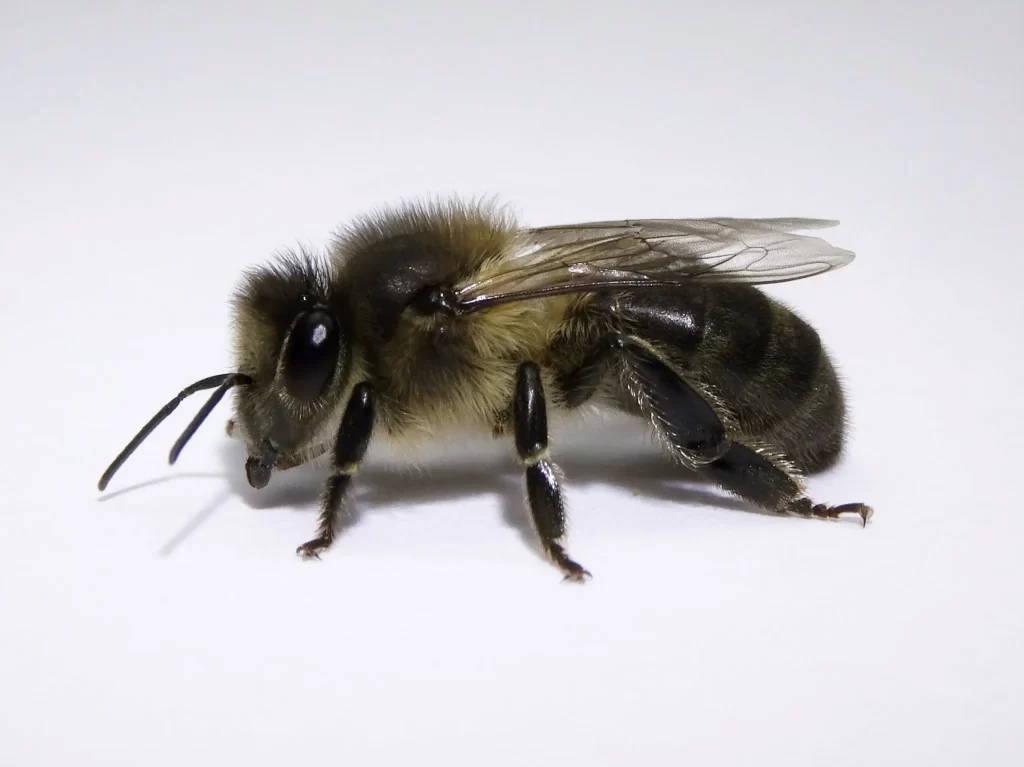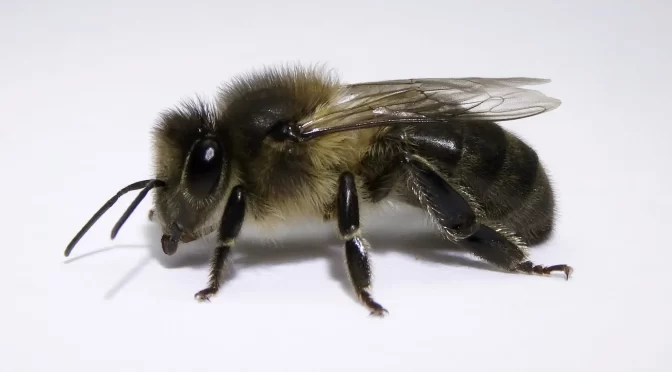There are over 20,000 species of bees in the world and humans have had a long association with them. Of course, humans have exploited bees to produce honey and wax, but they have had a more intimate relationship with bees as well, telling them of important events in their lives. The Basques have their own special relationship with bees, viewing the bees as sacred to the point that killing a hive could result in the loss of an arm.

- Of course, bees are valued for the products they produce: honey and wax. Honey was often the only sweetener and was used in all types of foods and drinks. It was also considered an energy food, to eat before hard work. Honey was also valued as a gift. Wax was even more important, as it was used for making candles, not so much to light the house, but for ritual use. Some places valued the venom from the bee sting, saying it helped prevent rheumatism.
- Communicating with bees was an important part of the death rite. If the master or mistress of the house died, it was the responsibility of those left behind to notify the bees. It could be a child or even a friend, but if a stranger told the bees, the bees would attack. They would go up to the hive, sometimes knocking on it with their hand or a stick, and simply tell the bees that “Nagusia hil da” (The master has died) or “Etxekoandria hil da” (The lady of the house has died). In some places, the bees would be told if any death occurred in the household, in others, only if the master or mistress died. This practice of “telling the bees” was still performed as recently as the early 1900s, and is not unique to the Basque Country – the royal bees were informed when Queen Elizabeth died. In some places, the heir to the house had to communicate the news, to also inform the bees of their new owner. And, in some places, a black cloth or veil had to be placed on the hive as a sign of mourning, or the bees would die.
- The origins of this practice are lost to time, but it is thought that, at some point, Basques thought that the bees were the souls of the dead, and that by announcing a death to the hive people were letting the bees know another soul was coming. In other places, they ask the bees to make more wax, to help light up the church or the grave of the deceased and the path for the soul. In many places, it was believed that the bees would die or the hive move if they were not told of the death. In others, it was thought that telling the bees about the death would cause them to produce twice as much honey.
- The bee was thus considered a scared animal. It was addressed as you would a person, with the second person “zu.” When trying to get a queen to take to a new hive, she was addressed as “anyeru ederra” or beautiful lady. In Bizkaia, it was illegal to buy and sell bees for money. Instead, they could only be traded, perhaps for linen, wheat, or sheep, or simply given away. It was also considered a sin to kill bees. In some places, if someone killed a bee hive, they had their arm amputated.
- There is one species of bee native to the Basque Country – the Euskal Herriko erle beltza, or the Basque black bee. These bees have a reputation for being aggressive, but they produce honey regularly and their hives require little attention from beekeepers. Further, they are used to the mountains and can withstand lower temperatures than other bees. There is a group – ERBEL, the Association of Black Bee Breeders, that is working to conserve and improve the breed.
Thanks to Davin Trent for sending me a correction and a link about the actual number of bee species known.
Primary sources: Aviso a las abejas. «Erletxuak, erletxuak», Atlas Etnográfico de Vasconia; Las Abejas. Erlea, Atlas Etnográfico de Vasconia; Gorostitxo, Centro de extracción de la miel, Euskonews
Discover more from Buber's Basque Page
Subscribe to get the latest posts sent to your email.



Thatnk you, I have never Keats the whole story about the Basque Back Bees, I will pass this info to my grandkids
Thank you for the bee & Basque article. Bees are so very important to humanity due to their role in pollenating crops. I see the Basques knew all along in their own special, mystical ways.
My wife and I have just been in Donostia for a week and several times we saw quite large and long bees with blackish bodies. I thought they might have been hornets but having rrad your article I wonder could they have been Basque Black bees?
I guess they very well could be. If I’ve seen them, I didn’t get them much notice, to be honest. But last time we were there my wife did got a pretty nasty sting from some kind of wasp, so they are certainly there too.